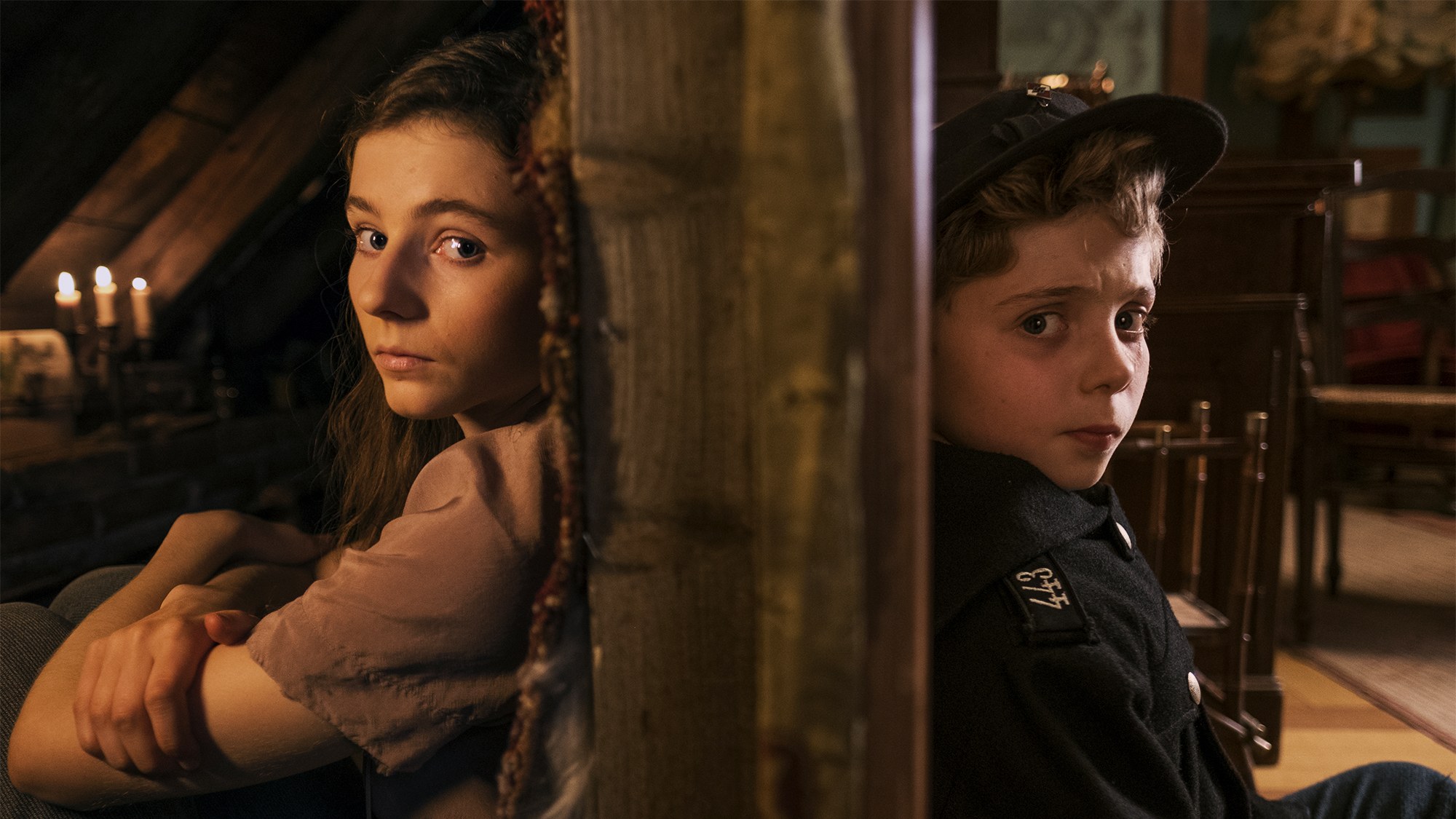
What is the best way to combat hatred? Do you meet force with force or can evil only be defeated by its opposite? Satire has been used to great effect in the past to highlight the danger of Nazism through absurdity, but in the midst of their current reemergence, can biting satire really make a difference? Jojo Rabbit is a satirical look at a German boy named Jojo (Roman Griffin Davis) living alone with his mother Rosie (Scarlett Johansson) during World War II while his father goes off to serve. Feeling lonely and inadequate, Jojo creates an imaginary friend, Adolf Hitler (writer/director Taika Waititi) that will help him become the strong, dedicated Nazi he believes he’s destined to be. One day, Jojo discovers that Rosie is helping to hide a young Jewish girl named Elsa (Thomasin McKenzie) and friend of Jojo’s deceased sister in their attic. Upon making the discovery, young Jojo is forced to decide just who he wants to be while inhabiting the vicious, turbulent world surrounding him.
In light of our turbulent times, some expressed concern about the appropriateness of and the ability to pull off, a modern satire about Nazism during the lead-up to Jojo Rabbit’s premiere. Executing this could have easily been mismanaged by Waititi, but the film succeeds in toeing the line between comedy and appearing too sympathetic by having the brutality of the Nazi regime bubbling underneath the surface at all times. The tone is set from the beginning of the film where, after a funny bit set in a Hitler Youth camp, young Jojo is beckoned to snap the neck of a rabbit in order to prove his murderous bonafides. That he is unable to do so is our first hint at his inherent aversion to what the Nazis stand for, but also that while this will be a satire of Nazi Germany, it won’t lose sight of just whom it’s making fun of.
Living under the rule of an authoritarian regime committed to such brutality inevitably has an effect on the greater society; members of the populace must choose whether to follow the path set by its leadership or set out to behave in a way that more closely reflects their inner selves. This is the choice Jojo is faced with throughout the film as he strives to finally belong to something and become a young man that lives up to (what he thinks is) his father’s example despite not being a hateful person at his core. The tug and pull between Jojo’s aspirational self and his true nature is immediately evident and kicks into overdrive once he discovers Elsa. As their exchanges become more frequent, the patience she displays with his casual antisemitism slowly signals to Jojo that perhaps these demonic, mystical Jews he has been told about aren’t as evil as society has taught him. The trajectory of their lives parallel each other, in important and tragic ways that bring them closer together. Jojo and Elsa’s comical yet touching relationship is meant to impart the fim’s overall message intended by Waititi that kindness and meaningful interaction with those unlike ourselves is the key to overcoming hate and prejudice.
The cast of Jojo Rabbit is able to deftly execute both the film’s comedic and serious elements just as well as the script and direction do, with Sam Rockwell and Alfie Allen playing the parts of the bumbling, idiotic Nazis Captain Klenzendorf and Finkel, the film’s comedic foils. The two provide some funny moments and toward the end of the film, Rockwell is given some poignant scenes that play on the film’s theme of finding one’s compassion. McKenzie and Davis display an endearing chemistry in their ever-evolving relationship throughout the film, bonding as young people trying their best to develop as normally as possible in a trying environment and learning that the way you prejudge people may not be what they truly are or what you’ve been taught that they are. Scarlett Johansson shines as the caring and courageous mother Rosie, serving as the film’s portrayal of silent heroism in the face of a surrounding evil. Her effectiveness in portraying a mother balancing care for her young, impressionable son and care for humankind makes the character one you’re rooting for and makes one of the most heartbreaking scenes in a film this year that much more devastating when it swiftly crushes the audience like a sledgehammer.
The successful sum of all these parts has to be attributed to Taika Waititi who wrote and directed the film. He had a heavy lift in finding the right balance of tone considering the subject matter and in the end, he decisively stuck the landing. Jojo Rabbit is funny throughout, but also handles the weighty elements perfectly and never lets you forget just whom is being lampooned and how despicable they truly are. The film is powerful and hard hitting in a way that I didn’t expect it to be, which helps give strength to its overall message and make the heartwarming parts that much more impactful. Jojo Rabbit will be an audience favorite for years to come.
Image: Fox Searchlight

